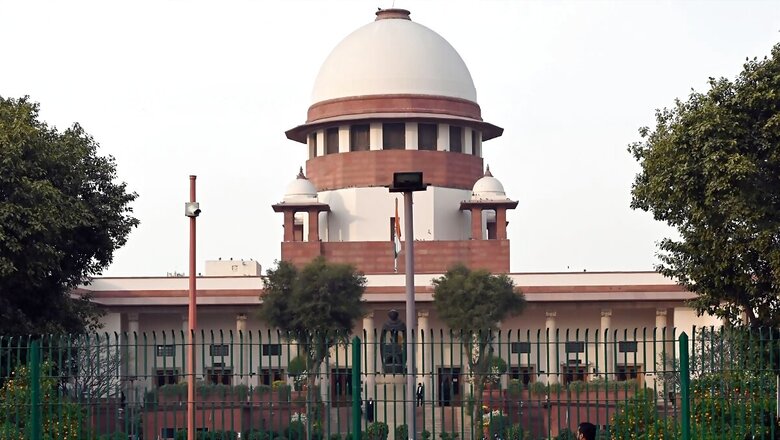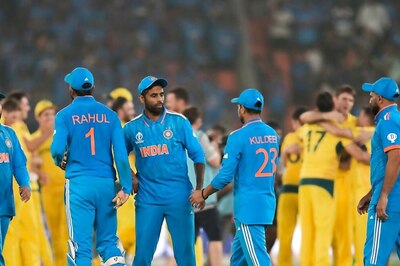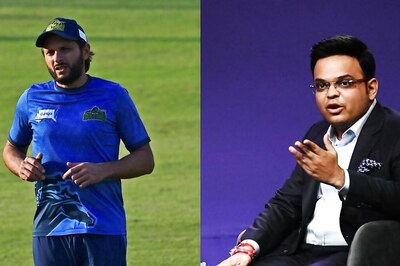
views
Yesterday, in the Supreme Court, the state machinery of West Bengal, represented by Senior Advocate Kapil Sibal, was repeatedly criticised for mishandling the criminal proceedings in the brutal rape and murder of the young doctor from Kolkata’s RG Kar Medical College and Hospital.
During the hearing, the entire nation witnessed a heated exchange between the Solicitor General of India, Tushar Mehta, and Kapil Sibal. As the Chief Justice of India DY Chandrachud-led bench reviewed the CBI’s status report on the crime scene, it was evident that the highest court of the country was dissatisfied with the handling of the case, from the point of commission of the crime, which was recorded as having occurred in the early hours of August 9, 2024.
“How was it that the post-mortem was conducted at 6:10 pm on August 9, yet the unnatural death information was sent to the Tala police station at 11:30 pm on August 9? This is extremely disturbing,” the bench questioned Sibal during the hearing.
Justice PB Pardiwala was seen expressing utter shock and dismay at the blatant disregard for provisions of the Criminal Procedure Code (CrPC). In fact, Justice Pardiwala remarked that in his 30 years of professional life, he had never encountered a situation like this, commenting on the far-reaching and dangerous consequences of the gross mishandling by the state machinery of the case at hand.
The bench continued to deliberate on the case, which it had taken suo motu cognisance of on August 18, and subsequently called for a status report on the crime from the CBI. By then, the Calcutta High Court had already transferred the investigation to the CBI. During the hearing, Sibal, who represented the West Bengal government, told the court that the federal agency’s status report was untrue and that the proceedings leading up to the registration of the FIR were incorrect. The Solicitor General then pointed out that the records were crystal clear and only corroborated the laxity of the Kolkata Police.
The bench focused on the delay in filing the Unnatural Death Report and the FIR. The bench was visibly irritated by the sequence of events and questioned the state. As Sibal asserted otherwise, the Solicitor General insisted that the case was not registered within the appropriate timeframe. At this point, Sibal sniggered.
SG Tushar Mehta immediately lashed out at Sibal, asking him not to laugh as someone had been raped and lost her life. This was no laughing matter, he insisted. “A girl has lost her life in the most inhuman and undignified manner. Somebody has died. Do not at least laugh.” The sniggering and Mehta’s reaction made headlines.
Rape cases are on the rise in India. Statistics reveal that in 2022, 31,000 rape cases were registered in the country. The increase in reporting of sexual violence crimes presents a paradox when considering India’s efforts to end violence against women (EVAW). While it is true that, in the Indian context, a rise in reporting of sexual crimes against women might indicate a growing shift against stigma, one cannot ignore the sheer numbers. This paradox raises many important questions for India as a country for women. Of particular concern is the trivialisation of sexual violence and crimes, a recurring theme that pervades almost every cross-section of society.
The Solicitor General’s vehement protest in the highest court was the culmination of this trivialisation that took place in the highest court of the land. It marked the breaking point for the countless silenced voices trampled beneath the stigma and backlash that a victim fears, long before she even considers coming forward.
This is not the only issue to consider. Just two days before the suo motu case was taken up, the Supreme Court had to intervene and overturn a judgment by the Calcutta High Court. In that case, the judge had acquitted an accused in a sexual assault case while advising adolescent girls to “control sexual urges.” The Supreme Court found it shocking that such comments were made, particularly in a case involving a 14-year-old girl. “How can you call the sexual assault of a 14-year-old non-exploitative?” the court remarked, clearly appalled by the perversity of the order and the trivialisation of a crime as serious as this under the stringent POCSO law.
In as much as it is colloquial, reporting a sexual crime and the trivialisation that accompanies it are two sides of the same coin. Often, “speaking up” by a survivor comes wrapped only in shrouds of hope—hope that each victim and survivor of a sexual crime clings to in the name of the law and justice. The sniggering and SG Tushar Mehta’s response made national headlines, not because that was the point, but because that is how it often plays out in the vertices of lesser-known towns, places, and police stations – most of which are hidden from full public view.
“Why are you laughing?” is not the first time someone has said to another in the midst of a sensitive sexual assault case. “How can you laugh?” No one will ever know. But, for our society, this minimalistic exchange in the highest court of the country is a reminder of the issues that surround us. It is a reminder that one can never get rid of termites without adequate, holistic treatment.
Views expressed in the above piece are personal and solely those of the author. They do not necessarily reflect News18’s views.




















Comments
0 comment